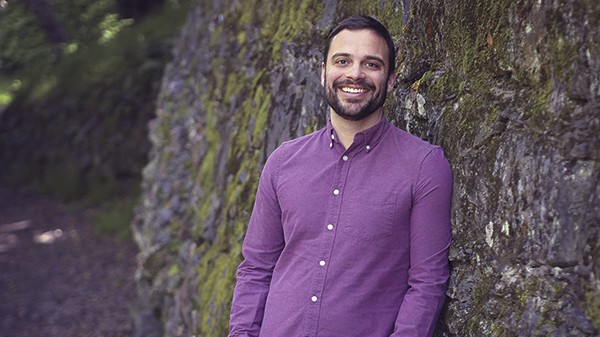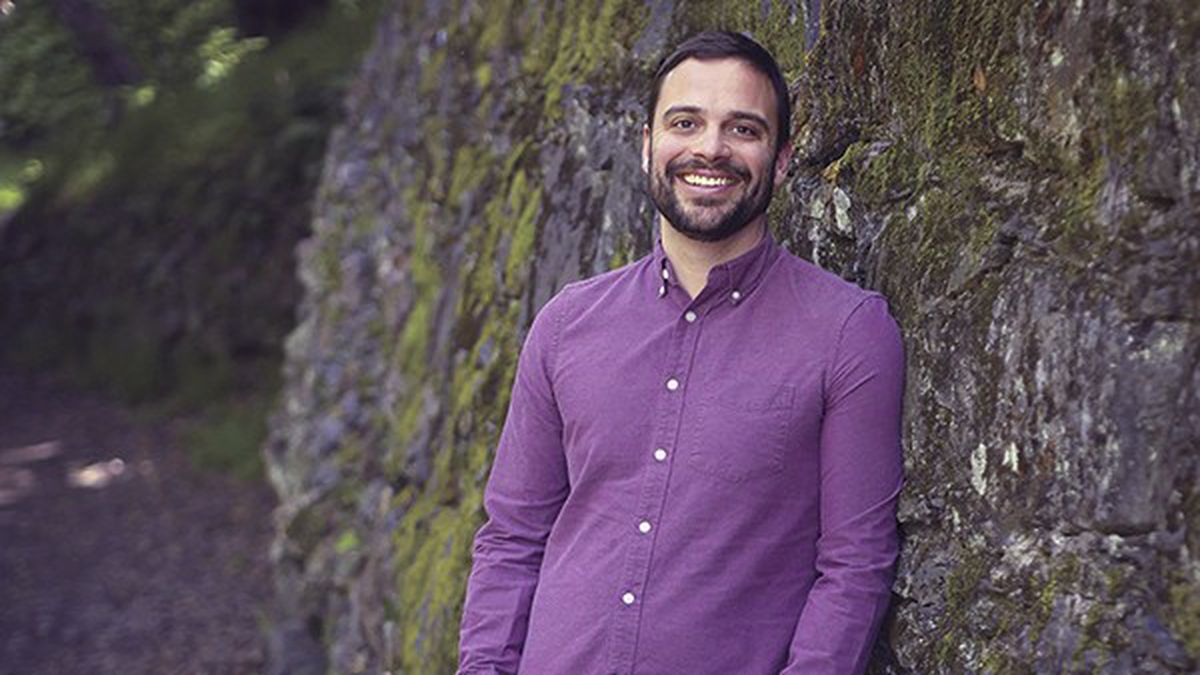
Michael David Lukas posits two takes on the notion of magical realism that one might say imbues both of his novels, the national bestselling 2011 debut, The Oracle of Stamboul, and his upcoming second book, The Last Watchman of Old Cairo.
“This is going to sound crazy, but I don’t think that it’s impossible that there is some sort of unreal or magical element to the world,” he said in his Oakland home. “We have this very kind of empiricist view of the world, and I would like to open up the possibility that there could be more.”
Then, almost as a sort of counterpoint to that first seemingly wide-eyed thought, Lukas refers to Gabriel García Márquez and his Nobel Prize acceptance speech, in which the Colombian author recounted various brutal events of Latin American history. “He basically says, ‘You people call this magical realism. But this is reality,'” Lukas said. Conquests and despotism, the rise and fall of empires, the actual violent events across time — for Márquez, that is what constituted the truly unreal, the absurd.
What is perhaps most unusual, though, and what interests Lukas and is, in some ways, central to his new book, is how day-to-day life occurs simultaneously throughout all this momentous history. More than once, the characters of The Last Watchman of Old Cairo — which revolves around a lineage of Muslim night guards protecting a synagogue and its geniza (a storage attic) — sense an almost supernatural energy within the geniza as they marvel at the minutiae of life contained in centuries of accumulated documents, business contracts, and love letters.
Lukas’ warmly affecting sophomore work largely examines what happens to all that life, its memories and stories, when the people experiencing it are gone: The book chronicles the Jews of Old Cairo, a minority population that has, in real life, dwindled to about a dozen.
“A few years ago, I went to the town where my grandfather and his family lived in Poland,” said the 38-year-old Berkeley-born author. “Just feeling the total lack of something I knew had existed there — I felt that also in Cairo.” Lukas, who is Jewish and works at UC Berkeley’s Center for Middle Eastern Studies, first traveled to Cairo as an undergraduate student at Brown University.
Specifically, The Last Watchman of Old Cairo, told from three perspectives alternating between chapters, observes the centuries-old relationship between the Jews of Old Cairo and one Muslim family. In the 11th century, a young Muslim boy named Ali becomes the night watchman of Old Cairo’s Ibn Ezra Synagogue, protecting the geniza and a legendary, potentially magical Torah scroll housed within. Ali’s duty is inherited by his descendants down to Joseph, a half-Muslim, half-Jewish Berkeley graduate student who in 2000 receives a package from his late father, the most recent watchman, and returns to Old Cairo to uncover his family’s complicated past. In between, a pair of British twin sisters in 1897 attempt to find the famous Torah while protecting the geniza’s documents that, in their dilapidated piles, ultimately amount to a sort of historical tapestry of a diminishing community.
“The vast majority of readers will be kind of shocked to hear that there were ever Jews in Cairo,” Lukas said. To him, the novel is most importantly a testament of their generational existence — and a captivating one at that.
Yet, in the notion of a Muslim protector of a Jewish community, Lukas also weaves a tale of peaceful co-existence within a historical context that so often conjures notions of the opposite.
“I think that people want to — to a certain extent — know about the Middle East,” Lukas said. Most readers “understand that the stereotyped view is incomplete, and they’re looking for other stories.” This fact, he postulates, might partially explain the success behind The Oracle of Stamboul, which told the story of a girl genius amid the waning years of the Ottoman Empire; it provided the opportunity to be swept away, while offering a story outside of a stereotyped view.
This time around, Lukas more overtly bucks preconceptions within his tale of Muslim-Jewish relationships, ultimately creating a more thematically focused second novel. Is he afraid of backlash in painting a positive vision where contention so often swirls instead?
“I like to think that I presented a world that’s somewhat optimistic, that sees the hope in this thousand years of history and the possibilities for co-existence and mutual understanding. If you have a problem with that — you know, fuck you,” he said with hearty, shrugging laughter.
Those ideals might seem particularly relevant for an American book in 2018, and Lukas acknowledges its importance in combating ignorant assumptions of the Muslim world.
“Unfortunately,” he conceded, “I feel like it’s always going to be relevant.” Conflicts of one kind or another occur perpetually — history, as Márquez laid out, is and always has been unfathomable in this way.
Yet it’s worth noting that Márquez ended his speech by advocating the idealistic storyteller’s hope for a different “utopia,” however unbelievable. Novels like Lukas’ can believe in the potential of another version of the world, whether we call it possible or magical or both.
Michael David Lukas will read at Octopus Literary Salon, 2101 Webster St., Oakland, on Friday, Mar. 16, 7 p.m.; at Pegasus Books Solano, 1855 Solano Ave., Berkeley, on Tuesday, Mar. 20, 7:30 p.m.; and at Mrs. Dalloway’s, 2904 College Ave., Berkeley, on Thursday, Mar. 22, 7:30 p.m. For more readings, go to MichaelDavidLukas.com.











